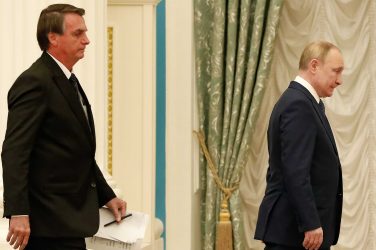 Broadcast licensing in Brazil, historically, has been opaque, not taking into account the public interest and not allowing for public participation in the process. International press-freedom organization Article 19 is calling for a complete overhaul of the system.
Broadcast licensing in Brazil, historically, has been opaque, not taking into account the public interest and not allowing for public participation in the process. International press-freedom organization Article 19 is calling for a complete overhaul of the system.
On November 27, 2008, an important step forward was taken when the House of Representatives organized a public hearing to discuss ways to improve transparency and participation in licensing processes with different civil society actors.
The main legislation in Brazil governing the operation of broadcast outlets is the 1962 Telecommunications Code, which is both technologically and democratically outdated, in particular inasmuch as it fails to respect key constitutional and international freedom of expression standards.
License renewals – after ten years for radio and fifteen for TV – must be approved by the Brazilian Congress.
The Constitution sets out some key principles governing this process, but these have habitually been ignored. Renewal of broadcasting licenses has been essentially automatic. There has been no opportunity for civil society to participate in the process or consideration of the overall public interest in this area.
In October 2007, several broadcasting licenses expired in Brazil, including some relating to major radio and TV channels. Since then, a coalition of civil society organizations has been advocating for greater access to the process.
Article 19 is urging the Brazilian federal government to adopt new, more democratic, legislation to regulate broadcasting, in particular, to promote pluralism and diversity in the media in the overall public interest.
At the 27 November hearing, the organization circulated a set of recommendations calling for new rules on broadcasting and highlighting the following needs:
For transparency and public participation in drafting the new rules.
To use the frequency spectrum to promote maximum diversity and plurality of voices, points of view and languages, including by granting equitable access to different types of broadcasters, namely private, community and public.
To create an independent broadcast regulator.
To define clear standards and processes governing the granting and renewal of broadcasting licenses, which allow for public participation.
To enhance mechanisms to implement broadcasting rules.
Article 19 also insisted on the need to enforce existing legal standards, including those relating to media concentration, media ownership by legislators and respect for human rights. Another urgent need, they noted, is improved transparency, in particular in relation to existing broadcast licenses and licensing procedures.




